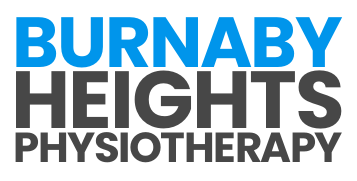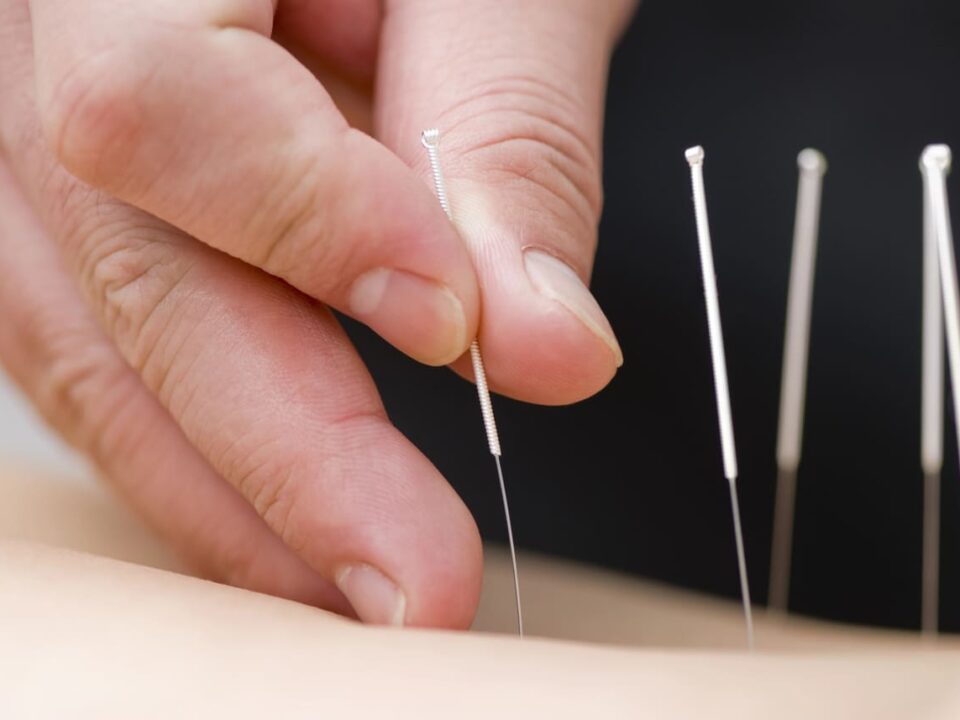
Understanding the Range of Care: Types of Physiotherapy Explained
April 15, 2025
The Tools That Move You Forward: Inside the World of Physiotherapy Equipment
May 16, 2025Acupuncture has been practiced for thousands of years, and its popularity continues to grow as more people seek safe, natural ways to support their health. This ancient technique involves the strategic placement of fine needles at specific points on the body to promote healing, balance energy flow, and address a wide range of physical and emotional conditions. In this blog, we’ll explore the many evidence-informed benefits of acupuncture—including pain relief, stress reduction, better sleep, improved digestion, and support for chronic health conditions—while highlighting how this holistic approach fits into modern health and recovery plans.
Benefits of Acupuncture for Pain Relief
One of the most well-known applications of acupuncture is for pain management. Whether it’s acute discomfort or chronic pain, acupuncture has been shown to provide relief through multiple mechanisms:
- Reduces Inflammation: Acupuncture triggers the release of anti-inflammatory substances, helping reduce swelling and tissue irritation.
- Stimulates Endorphin Release: These natural pain-relieving chemicals are released by the brain during acupuncture, decreasing the sensation of pain.
- Improves Circulation: Better blood flow enhances nutrient delivery to injured tissues and promotes healing.
- Modulates Nervous System Activity: Acupuncture can calm overactive nerve signals that contribute to pain sensations.
It is frequently used to treat conditions such as back pain, neck pain, headaches, osteoarthritis, and sports-related injuries, often in combination with other therapeutic approaches.
How Acupuncture Supports Mental Health and Stress Reduction
Acupuncture doesn’t just benefit the body—it also helps restore emotional and mental balance. Many people seek acupuncture to help manage anxiety, depression, and stress. The benefits include:
- Regulation of Stress Hormones: Acupuncture helps lower cortisol levels, which can contribute to a calmer mood and less tension.
- Stimulation of Relaxation Pathways: It activates the parasympathetic nervous system, encouraging relaxation and reducing fight-or-flight responses.
- Improved Mood Regulation: By influencing neurotransmitters like serotonin and dopamine, acupuncture supports a more stable emotional state.
- Reduction in Physical Symptoms of Stress: Muscle tension, headaches, and digestive discomfort often decrease with regular treatments.
These effects make acupuncture a valuable complement to traditional mental health treatments, helping individuals manage both the mental and physical aspects of stress.
Can Acupuncture Improve Sleep Quality and Help With Insomnia?
Acupuncture has shown promising results in improving sleep quality for individuals dealing with insomnia or disrupted sleep patterns. By calming the nervous system and helping regulate hormonal balance, it promotes more restful and consistent sleep. One of the primary ways it works is by reducing stress and anxiety—two common causes of sleep disturbances. This relaxation effect can make it easier to fall asleep and stay asleep through the night. Acupuncture may also help regulate melatonin production, a hormone that controls the body’s sleep-wake cycle.
For people whose pain interferes with rest, acupuncture can ease physical discomfort and muscle tension that disrupt sleep. Many people report feeling more refreshed upon waking and experience deeper, more restorative sleep after consistent treatment. As a natural alternative to medication, acupuncture offers a drug-free way to support healthy sleep, making it a valuable addition to long-term sleep management plans.
Enhancing Overall Well-Being and Energy Levels: The Role of Acupuncture
Many individuals turn to acupuncture not only for specific symptoms but also for general health and vitality. By supporting the body’s natural balance, acupuncture helps people feel more energized and resilient. Benefits for overall health include:
- Improved Circulation and Oxygen Flow: Better blood flow can increase energy and reduce fatigue.
- Hormonal Balance: Regulated hormone levels contribute to more consistent energy throughout the day.
- Stress Reduction: Lower stress levels mean less energy drained by chronic tension or emotional fatigue.
- Digestive Support: A healthy digestive system improves nutrient absorption, which fuels the body more efficiently.
People often describe feeling a sense of lightness, clarity, and increased vitality after regular acupuncture sessions.
Is Acupuncture Effective for Managing Chronic Conditions?
Acupuncture is often used as part of a comprehensive care plan for individuals living with chronic conditions. While it may not serve as a standalone treatment, it can greatly improve day-to-day comfort and functionality. For example, individuals with arthritis may experience reduced joint pain and improved mobility, while those with migraines or chronic headaches may see fewer episodes and milder symptoms. People with fibromyalgia and chronic fatigue syndrome often report a decrease in widespread pain and an increase in energy levels.
Acupuncture can also help regulate hormonal imbalances, making it beneficial for menstrual issues and menopause symptoms. Digestive concerns like IBS may improve as well, thanks to the calming effect acupuncture has on the gut-brain connection. When incorporated into a broader treatment strategy, acupuncture can enhance quality of life, helping individuals manage pain, reduce reliance on medication, and maintain a more balanced daily routine.
Benefits of Acupuncture for Digestive Health
Acupuncture supports digestive health by promoting balance within the gastrointestinal system and improving communication between the brain and gut. Specific benefits include:
- Relief from Bloating and Indigestion: Calms the digestive tract and regulates stomach acid production.
- Improved Bowel Regularity: Helps with both constipation and diarrhea by regulating intestinal motility.
- Reduction in Nausea: Especially helpful for those undergoing chemotherapy or dealing with motion sickness.
- Support for Inflammatory Conditions: Conditions like Crohn’s disease or ulcerative colitis may benefit from acupuncture’s anti-inflammatory effects.
By addressing underlying imbalances in the digestive system, acupuncture helps people feel more comfortable and improves nutrient absorption.
Immune-Boosting Benefits of Acupuncture
Acupuncture may support immune health by helping the body regulate inflammation, enhance circulation, and maintain physiological balance. It has been shown to stimulate the activity of white blood cells, which play a key role in fighting infections like viruses and bacteria. Acupuncture also improves the movement of lymph, which supports the body’s detoxification process and bolsters immune function.
Additionally, its anti-inflammatory effects help reduce chronic, low-grade inflammation that can impair the immune system over time. For individuals with autoimmune conditions or frequent infections, acupuncture can help restore a more balanced immune response. When used regularly, it may reduce the frequency of colds, respiratory infections, and flare-ups of chronic conditions. These immune-regulating effects, combined with its ability to reduce stress and support general health, make acupuncture a helpful tool in maintaining long-term health and resilience.
How Acupuncture Supports Recovery From Injury and Surgery
Yes, acupuncture is frequently used to enhance recovery following physical trauma or surgical procedures. It supports the body’s healing process in several ways:
- Reduces Post-Surgical Pain: Helps decrease the need for pain medications by targeting local and systemic discomfort.
- Minimizes Swelling and Inflammation: Promotes circulation and lymphatic drainage around injured or operated areas.
- Accelerates Tissue Healing: Encourages the release of growth factors that support tissue regeneration.
- Improves Mobility: Relieves muscle tension and stiffness to enhance joint movement during rehabilitation.
- Supports Emotional Well-Being During Recovery: Helps manage anxiety, fatigue, and sleep disturbances during the healing process.
When integrated into a post-operative care plan, acupuncture can help shorten recovery times and improve outcomes.
How Quickly Can You Experience the Benefits of Acupuncture?
The timeline for seeing results from acupuncture varies depending on the condition being treated, its severity, and the individual’s overall health. Some people notice immediate relief after just one session, especially if the issue is acute or stress-related. For others—particularly those managing chronic or complex conditions—results may emerge more gradually, often after a few sessions. A common pattern is to feel small improvements after two to four treatments, followed by more noticeable changes as the body continues to respond over time.
In cases where long-standing health concerns are being addressed, acupuncture provides cumulative benefits with consistent use. The key is regularity and communication with your acupuncture practitioner, who will adjust your treatment plan based on how your body is responding. With patience and consistency, many people find acupuncture to be a reliable and sustainable part of their long-term strategy.
Reducing the Side Effects of Other Medical Treatments: The Role of Acupuncture
Acupuncture is often used to help mitigate side effects of medications, surgeries, or other treatments, making it a supportive addition to many care plans. It has been found helpful in:
- Alleviating Nausea From Anesthesia: Acupuncture is widely recognized for reducing nausea and vomiting.
- Managing Fatigue From Chronic Illnesses or Treatments: Supports energy levels during taxing medical regimens.
- Easing Pain From Radiation Therapy or Post-Surgical Healing: Offers relief without adding medication-related side effects.
- Improving Appetite and Digestion: Helps those whose treatments affect appetite or gut function.
- Supporting Emotional Well-Being During Medical Treatment: Reduces anxiety, depression, and fear related to treatment experiences.
Many healthcare providers now recommend acupuncture as a complementary option to improve comfort during recovery.
Are the Benefits of Acupuncture Backed by Scientific Research?
Yes, many of acupuncture’s benefits are supported by scientific research, particularly in areas like chronic pain, anxiety, insomnia, and inflammation. Studies have shown that acupuncture stimulates the central nervous system, leading to biochemical changes that influence the body’s healing mechanisms. It activates the release of natural opioids, which help reduce pain and improve mood, and it has been shown to regulate hormone and neurotransmitter levels that affect sleep, stress, and digestion.
Research also indicates that acupuncture improves blood flow and reduces inflammatory markers, which can benefit conditions like arthritis and musculoskeletal injuries. Systematic reviews and clinical trials have demonstrated its effectiveness for several chronic conditions, reinforcing its role as a complementary therapy in both Eastern and Western medical systems. While more research is ongoing, especially in emerging areas, existing evidence continues to validate acupuncture as a safe, effective, and science-supported treatment option.
Don’t Let Pain Hold You Back
Acupuncture offers a natural, research-supported way to manage pain, reduce stress, and support whole-body well-being. Whether you’re recovering from injury, dealing with chronic discomfort, or simply looking to improve your energy and sleep, acupuncture can help.At Burnaby Heights Physiotherapy, we offer personalized acupuncture treatments tailored to your unique health goals. Contact us today to schedule your appointment and experience the restorative benefits of acupuncture firsthand.






